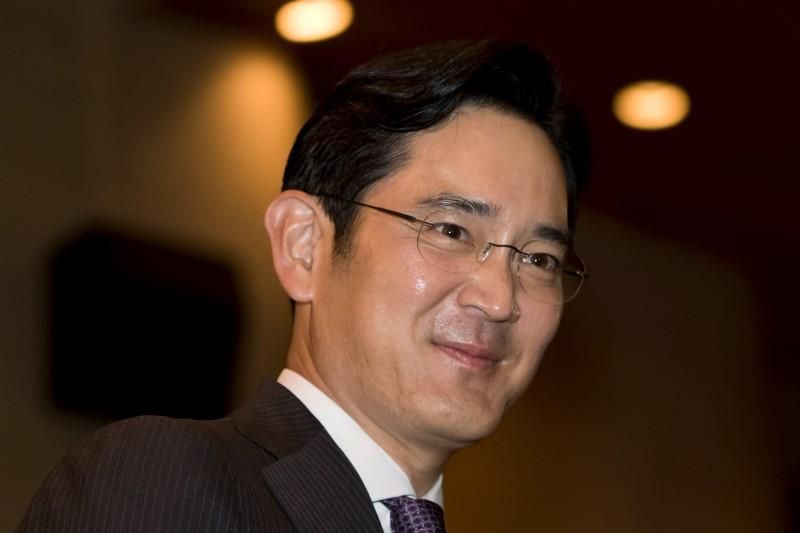SEOUL, Aug 10 — The life of soon-to-be-released Samsung chief and South Korean billionaire Lee Jae-yong epitomises the privileges, power and perils of the super-rich in the world’s 12th-largest economy, a country sometimes dubbed the “Republic of Samsung”.
Best known internationally as one of the world’s largest smartphone and chipmakers via flagship subsidiary Samsung Electronics, at home the wider group pervades every facet of life — and even death — from homebuilding to funeral parlours via health care and theme parks.
Samsung is by far the largest of the chaebols, the sprawling family-controlled conglomerates that drove the South’s transformation from war-ravaged ruin to a leading world economy.
But chaebols are criticised for stifling innovation and competition, while family feuds and criminal charges — often related to tax evasion or bribery — regularly make headlines.
Lee, 53, is serving a two-and-a-half-year prison sentence for embezzlement, bribery and other offences in the corruption scandal that brought down former president Park Geun-hye.
The justice ministry announced yesterday he had been paroled and would be released later this week, citing concerns over the coronavirus pandemic’s impact on the economy.
But Lee’s separate trial continues over alleged stock manipulation that effectively eased his path to take control of the family conglomerate.
“Lee Jae-yong, more than anyone else, symbolises the inequality of Korean society,” Song Won-keun, an economics professor at Gyeongsang National University, told AFP.
“We are seeing someone whose capabilities are yet to be proven taking control over the country’s biggest company, using criminal tactics, just because his father was the chairman of the firm.”
‘Crown prince’
Lee was born in 1968, the eldest son of Lee Kun-hee, the Samsung Electronics chairman who died in October 2020 after being hospitalised for years.
The chaebols have long been accused of murky political connections, and analysts say the father’s arranged marriage to Hong Ra-hee — a daughter of a former justice minister, who has since assembled a world-class art collection — cemented Samsung’s rise to behemoth status.
Their son, often dubbed the firm’s “crown prince”, studied Asian history at South Korea’s top Seoul National University before studying business at Japan’s elite Keio University and later Harvard.
His youngest sister, Yoon-hyung, took her own life in her New York apartment in 2005, at the age of 26.
Lee’s late father is credited with transforming a once-obscure manufacturer of low-quality consumer electronics into a global powerhouse and one of the world’s top smartphone makers.
He left assets worth an estimated 22 trillion won (RM80.8 billion) when he died last year, and one of the world’s largest inheritance tax bills, but is generally not seen as having passed on his management prowess.
Lee Jae-yong is now ranked 188th among the world’s richest by Forbes, worth US$12.3 billion (RM52 billion), but his so-called e-Samsung venture of the early 2000s — a group of e-commerce businesses — was shut down after racking up around 20 billion won in losses.
Nonetheless he was made vice-chairman of Samsung Electronics in 2012.
And his imprisonment has been no barrier to the firm’s performance — it announced a surge of more than 70 per cent in second-quarter profits last month, with coronavirus-driven working from home boosting demand for devices using its memory chips.
“So far, he is basically an heir,” said Vladimir Tikhonov, a professor of Korean Studies at the University of Oslo.
“He inherited South Korea’s biggest corporation without having done much to improve it.”
Ending family succession
Lee Jae-yong married Lim Se-ryung, the granddaughter of the founder of South Korean food giant Daesang, in 1998.
The couple had a son and a daughter but divorced in 2009 and Lee remains single.
Chaebol families often have only a small ownership stake in their empires, but maintain control through complex webs of cross-shareholdings between units.
But Lee promised last year to end the line of family succession at the firm, saying he would not pass down his role to his children as he bowed in apology for multiple controversies.
His release, due on Friday, will be in the country’s long tradition of freeing business leaders jailed for corruption or tax evasion on economic grounds — his late father was twice convicted of such crimes and twice pardoned.
Corporate leaders and analysts had said his continuing absence could hamper Samsung Electronics’ decision-making on large-scale investments — moves which have been key to its global rise.
But Tikhonov took a different view, saying his parole illustrated the enduring power of vested interests: “Money remains a factor which shortens your prison term — if you have money.” — AFP






















